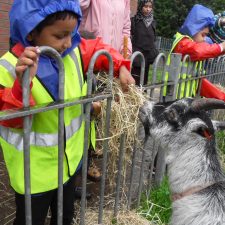
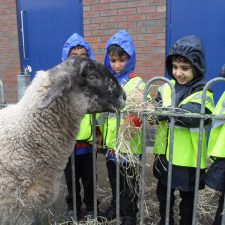
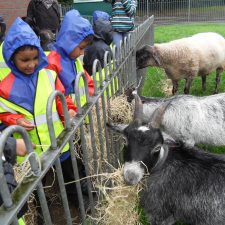
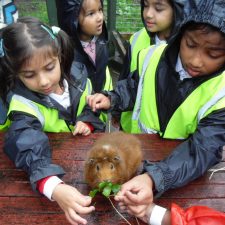
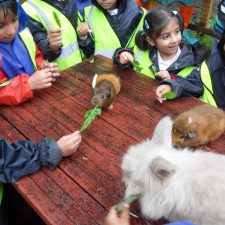
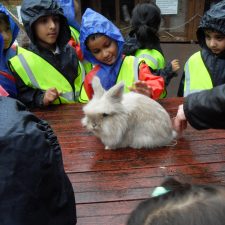
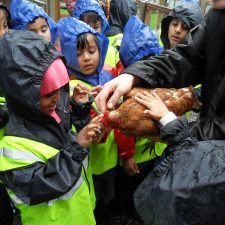
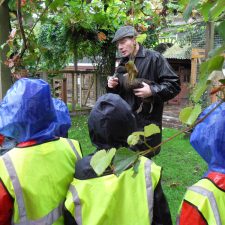
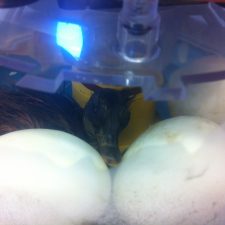
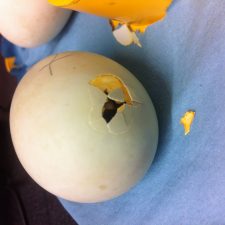
![IMG_1188[1]](https://stpaulstrust.org.uk/wp-content/uploads/elementor/thumbs/IMG_11881-nspvv4e5cfqmlshrf7sezhgyo590kbvlhgvr306vwq.jpg)
![IMG_1162[1]](https://stpaulstrust.org.uk/wp-content/uploads/elementor/thumbs/IMG_11621-nspvv0msl3lhbcn8165wpif4alrjpjgo4y9t5wcglm.jpg)
In a new environment with a new subject, children’s interest can be stimulated. A visit to your local City Farm will encompass the main areas of learning and development in the Early Years Foundation Stage and can reinforce and stimulate the work you do back within your setting.
All of our visits include our Interactive Farm Tour- “Meet the Animals” the children can observe the animals up close, touch them, feed them, learn about them and appreciate the differences and similarities between them.
Please inform us which part of the EYFS curriculum you would like us to concentrate on.
The children will learn new vocabulary as they visit each animal and can listen to what sounds they make. Can they hear anything else? Are there cars driving past, can they hear the trees rustle, the birds sing? Come and find out!
The children can have fun moving like the different animals, can they hop see to visit the rabbits? Skip to see the goats, waddle with the ducks and prowl like a farm cat?
Through feeding the animals or taking part in a growing session they can learn about healthy diets. The importance of hygiene is reinforced at the Farm, washing hands thoroughly being a crucial part of every visit and talking about why it is important.
The children are encouraged to build confidence by trying new activities such as meeting unfamiliar animals in a safe environment. Can they find any mini beats? Dare they hold a worm, or stroke a cat, what does a chicken feel like? How do you hold a guinea pig and care for her?
By talking about the needs and feelings of the animals, empathy can be built, children will be told of the acceptable way to behave around the animals. Taking turns nicely when it comes to stroking or feeding animals is just as important as it is when taking turns when playing with friends.
We can arrange a visit around a story. ‘The Little Red Hen’, or ‘The Scarecrow Who Couldn’t Scare’ are both popular or would you like a different story? The children can also do an activity to go with it.
Visits can also stimulate reading and writing activities back in nursery or school. Why not create your own story with the animals you visit?
Number practice is always useful and seems much more fun in the real world. How many ducks are swimming in the pond? Who is the biggest, the sheep or the goat? Which chicken is the furthest away? How many steps is it to visit each animal, shall we count them?
Animals and plants are an important part of the world around us. The children can learn what a farm is and why some animals are bred. Do children have experiences of their own with animals and farms? Perhaps they have family members with livestock in this country or abroad? Some cultures will eat meat from certain animals and not others.
The growing areas on the farm can introduce the children to fertilisation, the importance of insects and how seeds are formed and what plants need to grow.
We have incubators on the farm, the children may get to see our eggs hatch. We can observe the structure and parts of animals and plants, talk about life-cycles, simple food chains, growth and decay and the changing seasons.
| Cookie | Duration | Description |
|---|---|---|
| cookielawinfo-checkbox-analytics | 11 months | This cookie is set by GDPR Cookie Consent plugin. The cookie is used to store the user consent for the cookies in the category "Analytics". |
| cookielawinfo-checkbox-functional | 11 months | The cookie is set by GDPR cookie consent to record the user consent for the cookies in the category "Functional". |
| cookielawinfo-checkbox-necessary | 11 months | This cookie is set by GDPR Cookie Consent plugin. The cookies is used to store the user consent for the cookies in the category "Necessary". |
| cookielawinfo-checkbox-others | 11 months | This cookie is set by GDPR Cookie Consent plugin. The cookie is used to store the user consent for the cookies in the category "Other. |
| cookielawinfo-checkbox-performance | 11 months | This cookie is set by GDPR Cookie Consent plugin. The cookie is used to store the user consent for the cookies in the category "Performance". |
| viewed_cookie_policy | 11 months | The cookie is set by the GDPR Cookie Consent plugin and is used to store whether or not user has consented to the use of cookies. It does not store any personal data. |